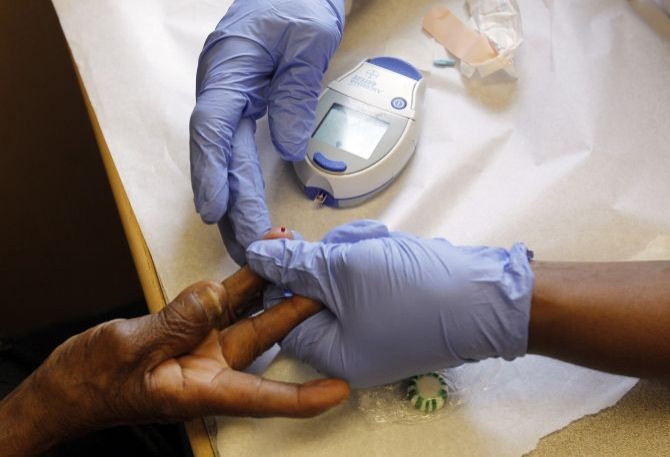2 Million Glucose Monitors Being Recalled Because Of Testing Limit -- Is It Necessary?

Johnson & Johnson is recalling and replacing over two million blood glucose meters worldwide because they are unable to report extremely high blood glucose levels. The recall covers the consumer Verio IQ model, the OneTouch Verio Pro meter and the OneTouch Verio Pro+ model used in hospitals across the Middle East, Europe and the Asia/Pacific region.
The units are reported to fail to give a warning and shut off if blood glucose levels are above 1024 mg/dL, which could delay urgent treatment according to the company. In the United States 90,000 OneTouch Verio IQ meters are being recalled out of a total of 1.2 million worldwide.
No one has become injured or died as a result of the hardware malfunction. LifeScan, the unit responsible for producing the glucose blood monitors, stated that there was one report of a serious adverse event outside of the US, but it was not determined to be directly linked to the type of glucose monitor indicated in the recall.
"We regret the inconvenience these actions may cause. However, we will always err on the side of caution and make a decision that is in the best interest of our patients," Michael Pfeifer, LifeScan's chief medical officer, said in a statement.
The best-selling consumer model from LifeScan, OneTouch Ultra, was not impacted by the recall.
Normal blood glucose levels are between 79 and 110mg/dL on a fasting diet and in healthy people blood glucose levels can peak at just over 140 mg/dL after meals.
What is interesting to note is that if someone has a blood glucose level anywhere approaching 1,000 they are very ill and will most likely either be in the hospital or on their way to one. People with blood sugar levels that high usually are already in comas because of the inability of the body to properly regulate the sugar uptake out of the blood and into the tissues and organs.
The highest ever recorded blood glucose level was reported in the Guinness Book of World Records at a shocking 2,656 mg/dL from Michael Patrick Buonocore (b. 19 May 2001), when admitted to the Pocono Emergency Room in East Stroudsburg, Pennsylvania, USA, on 23 March 2008. He was suffering from undiagnosed Type 1 Diabetes.
The recall press release can be found here.



























